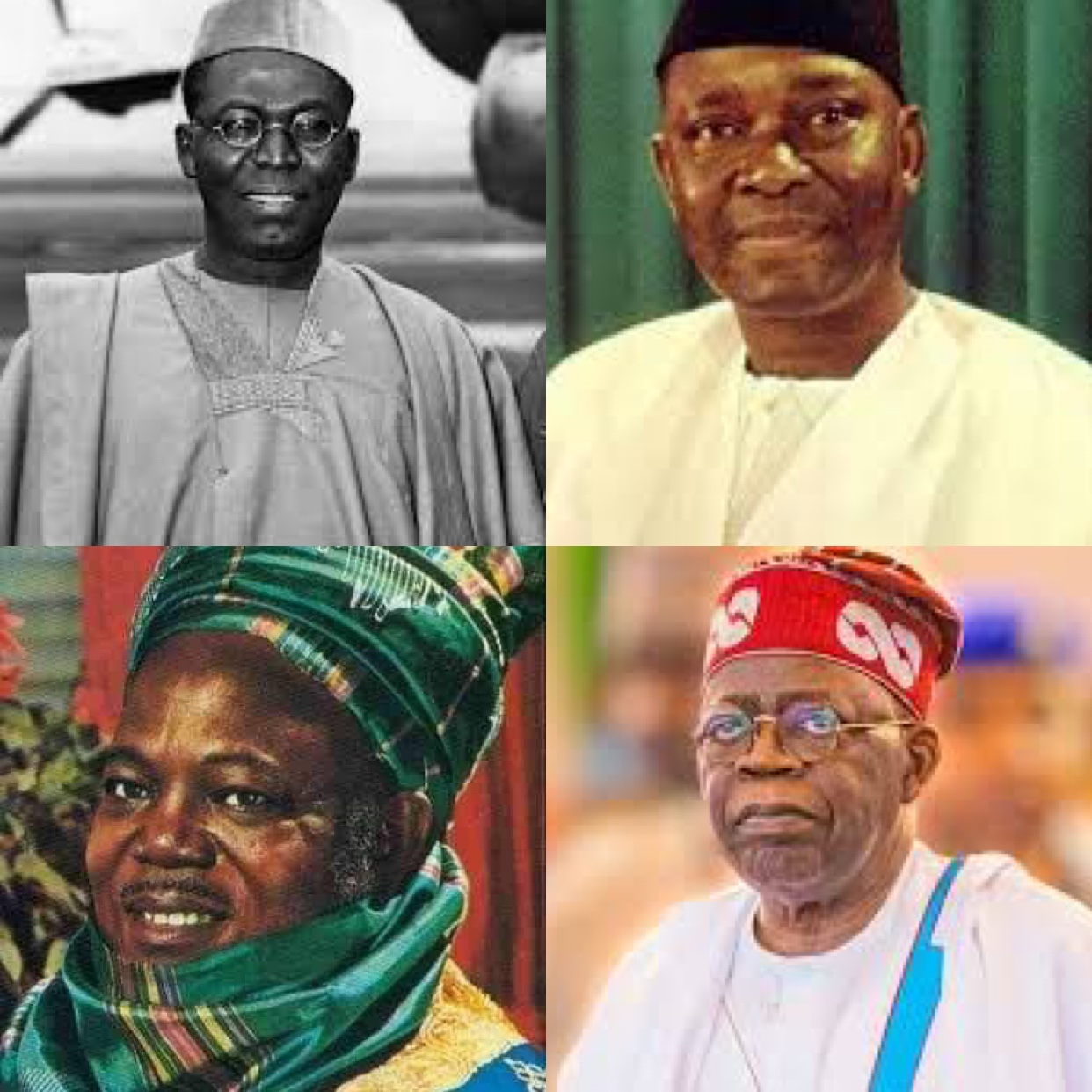Yorubaland: Where religious sectarianism is doomed

Yorubaland: Where religious sectarianism is doomed
By Wole Olaoye
Those who are eagerly waiting for the day when religion will divide Yorubas will wait in vain.
A combination of a sophisticated worldview, an age-long tradition of interacting with humanity of all races and tendencies, and a realisation that religion is distinct from governance — all these have made the Yorubas open their doors to new faiths without becoming enslaved by them. Yoruba culture has survived for centuries in the Caribbean and Latin America. It does not seek to dominate, nor will it be dominated.
When Bashorun J.K. Randle (scion of the illustrious Randle family of Lagos) handed over the property of his late aunt, Alhaja Munirat Muhammed, at 14A Bashorun Street, Ikoyi, to the Muslim community through the Lagos Central Mosque, many people who did not understand the symbiotic relationship between Christians and Muslims in Nigeria’s South-West were confounded.
Whereas the two major religions in Nigeria — Christianity and Islam — are the cause of many a Cobra-Vs-Mongoose fight in several parts of Nigeria, the Yorubas of the South-West don’t nurture centrifugal tendencies in respect of either religion. Instead, there is tolerance for even a third force: Traditional religion.
A devout Muslim, Rauf Aregbesola, was governor of Osun State for eight years, during which period he ensured that prayers offered at public events represented the three faiths of the people — Islam, Christianity and the indigenous Ifa religion. That large-heartedness did not make Aregbesola any less a Muslim. He was only being Yoruba.
Some people are so far gone in their religious enslavement that they don’t even recognise traditional religion as a religion at all. Colonialists characterised traditional religion as paganism because the white man did not understand that Olodumare was the Yoruba’s equivalent of Almighty God. It took the landmark research of Professor Bolaji Idowu (who later became Prelate of the Methodist Church of Nigeria) to rescue colonialists and their neo-colonial sidekicks from ignorance. The book, Olodumare: God in Yoruba Belief, marked a turning point in opening the window of understanding to those interested in the cosmology and beliefs of the Yoruba.
Just like Christianity and Islam, the Ifa religion espouses the inescapability of judgement. According to Professor Idowu, “Olodumare is the final disposer of all things. He is the Judge. He controls man’s destiny and each will receive from Him as he deserves.”
How different is that from Islam and Christianity?
For the avoidance of doubt, I am a Christian, not an Ifa devotee. But I’ve been socialised to respect other people. You may be Hindu, Bahai, Eckankar, Sikh or a devotee of some other sect. How you worship is not my business.
The Far Right tendencies of any religion cannot prevail in Yorubaland. If you had a Christian sect that routinely demonises Muslims, for example, it will labour in vain among Yorubas. The same thing would happen if a Muslim was anti-Christian. To be sure, there are contestations and jostling for space and influence among Muslims and Christians, but not the type that endorses decapitations and mob justice elsewhere.
It is understandable that some people from a background of religious acrimony may find the Yoruba brand of tolerance strange. But ignorance, such as has been displayed by some uninformed commentators in the formal and informal media recently, is no excuse for misbranding. One alleged case of discrimination cannot be used to tar millions of people who are tolerant of other religions.
In some parts of Nigeria, the punishment for changing your religion is death. I have written in the past about the son of an Imam in Esure, Anthony Saliu Sanusi, who became the first Catholic Bishop of Ijebu-Ode diocese. I have also referred in the past to the late Reverend Fr. Peter Adeyemi, blood brother of the Alaafin of Oyo, Oba Lamidi Adeyemi, as another example of a Muslim, who not only changed to Christianity but who went on to become a celibate priest.
It is the same story when you flip the coin. Alhaja Munirat Muhammed, Randle’s aunt, started life as Esther. According to her nephew, “When she of her own volition converted to Islam, nobody in our family batted an eyelid. Neither was there any issue raised when she chose to marry a Moslem, Alhaji Bakre, who promptly whisked her off to Sapele where they resided for several years in peace and harmony.”
Those who know me know that I don’t deal with people on the basis of ethnicity or religion or any of the other primordial viruses.
It is understandable that some people from a background of religious acrimony may find the Yoruba brand of tolerance strange. But ignorance, such as has been displayed by some uninformed commentators in the formal and informal media recently, is no excuse for misbranding. One alleged case of discrimination cannot be used to tar millions of people who are tolerant of other religions. It ought to suffice to tell such fishers of mischief that for every rule there may be an exemption; the exemption does not cancel out the rule.
In my own family, we are paternally about 95 per cent Muslim, while maternally Christians account for about 97 per cent. There are traditional worshippers on both sides. Members of the family have married into other cultures too: Opobo, French, Igbo, American, Nupe, British, Italian, Ibariba, etc.
I proudly extend courtesies to my Muslim relatives during Ramadan and Eid el Kabir. They reciprocate the gesture during Easter and Christmas. Most families are like that. Bigotry has no place in our environment.
The relationship between the various religions, especially Islam and Christianity, is one of mutual respect and healthy competition. Islamic groups like Ansar Ud Deen, Ahmadiyya, Zumratul, have schools in competition with the Catholics, Anglicans, Methodists. Nowhere else in Nigeria can one find such competition for progress. Thus, in the South-West, Islam is part of the progressive movement, not stuck in the middle ages.
I am aware that in some other places, some people have developed a serious inferiority complex on account of the fact that the only schools they ever saw were owned by either Christian missions or the government. No South-Western Muslim can ever suffer such affliction because he knows that some Christians also attend Muslim schools back home. He has absolutely no reason to feel inferior.
“Back in 1954 when the Marian Congress was hosted in Lagos by the Catholics to celebrate 100 years of the miracle of Lady Fatima, Cardinal John McIntyre, the Archbishop of Los Angeles, USA, who presided at the ceremony, was amazed when Moslem children insisted on full participation along with their Christian brethren. Adults and children were decked out in Ankara uniform, regardless of whether they were Christians or Moslems.”
No one tells the story of the historical amity existing between Muslims and Christians in Yorubaland better than Chief J.K. Randle, former president of the Institute of Chartered Accountants of Nigeria:
“It behoves us to cherish and celebrate the ruggedness and resilience of the bond between Christians and Moslems in this part of our nation. Most of you are aware of the twin brothers who went to different schools — one was at Methodist Boys’ High School, Lagos (and was a Christian) while the other twin attended Ahmadiyya College, Agege (and was a devout moslem).
“The late Alhaji L.B. Agusto was Chief Imam of Lagos but that did not preclude him from being the lawyer to the Catholic Diocese of Lagos under late Archbishop Leo Taylor.
“It was Alhaji Jubril Martins, another moslem who had attended St. Gregory’s College, that succeeded Alhaji Agusto as the lawyer to the Catholic Church. When Alhaji Jubril Martins died in Mecca in 1958, he was deeply mourned by both Christians and Muslims. It was to no avail that the Christians pleaded that his corpse should be brought back to Lagos for burial. The Saudi authorities would not yield. The Lagos moslems readily came to terms that it was the will of Allah.
“Back in 1954 when the Marian Congress was hosted in Lagos by the Catholics to celebrate 100 years of the miracle of Lady Fatima, Cardinal John McIntyre, the Archbishop of Los Angeles, USA, who presided at the ceremony, was amazed when Moslem children insisted on full participation along with their Christian brethren. Adults and children were decked out in Ankara uniform, regardless of whether they were Christians or Moslems.
“For those who insist on concrete evidence, I suggest you visit 123 Bamgbose Street; 125 Bamgbose Street; and 127 Bamgbose Street, all in Lagos. They belong to the Akerele; McGregor and Da Silva families respectively. All of them are staunch Catholics. Directly across the street is the Salvador Mosque. There is no record of friction between the Catholic and the Moslem community. On the contrary, there is hardly any of the children of those Catholic families that was not given a Moslem “Suna” in joyful celebration by the adherents of Islam from across the street…
“The old Lagos Central Mosque itself was actually designed by and constructed under the supervision of Engineer George Debayo Agbebi, a Christian… Even the new Central Mosque was built by an Italian (Catholic) company, G. Cappa & Co…”
Perhaps I should add, as a reminder, that Chief Obafemi Awolowo’s sister, Alhaja Awofeso, was a Muslim. Awolowo’s government had the distinction of establishing the first Pilgrims’ Welfare Board in Nigeria to cater to the needs of Muslims during the annual Hajj pilgrimage. Yorubas had embraced Islam since the 14th century through Malian traders, well before the Fulani Jihad.
A combination of a sophisticated worldview, an age-long tradition of interacting with humanity of all races and tendencies, and a realisation that religion is distinct from governance — all these have made the Yorubas open their doors to new faiths without becoming enslaved by them. Yoruba culture has survived for centuries in the Caribbean and Latin America. It does not seek to dominate, nor will it be dominated.
Those who are eagerly waiting for the day when religion will divide Yorubas will wait in vain. He who wants to catch the crab going to bed has bad news awaiting him: He may wait forever.
First published by Premium Times
Wole Olaoye can be reached through [email protected].
ⓘ





